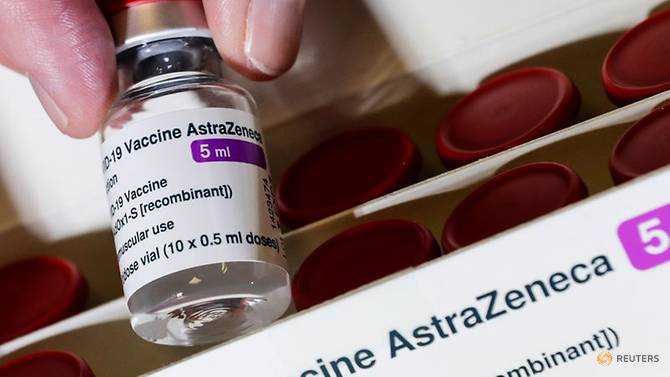AstraZeneca COVID-19 vaccine is ‘haram’, but permissible because of crisis: Indonesia Islamic body
20 March, 2021

Indonesia’s most influential Islamic organisation said AstraZeneca’s COVID-19 vaccine is “haram” or perhaps forbidden for Muslims, but its use could be temporarily permitted because of too little alternatives.
The Indonesian Council of Ulema or MUI said it has conducted studies on the vaccine to see if it's “holy and halal” for Muslims to use.
The studies, said head of the council’s fatwa section Asorirun Niam Sholeh, showed that the AstraZeneca vaccine uses pork-derived trypsin - which is required to breakdown proteins - in its production. Pork is considered unclean by Muslims.
“COVID-19 vaccine made by AstraZeneca is going to be haram since it uses pork-derived trypsin on its production,” Mr Sholeh told a press conference about Friday (Mar 19).
“Nevertheless, the utilization of COVID-19 vaccines made by AstraZeneca is for the present time permissible.”
Mr Sholeh said the utilization of the vaccine is permissible by Islamic laws because there is an urgent have to get persons vaccinated immediately and the clean and halal substitution isn't yet sufficient.
The permission to use COVID-19 vaccines produced by AstraZeneca won't be valid, Mr Sholeh said, when there exists a sufficient supply of clean and halal vaccines.
The MUI can be an independent organisation but its fatwas, or religious edicts, are followed by millions of people moving into this Muslim-majority country.
The decision could reduce confidence in the AstraZeneca vaccines, leaving Indonesia with just one single approved vaccine, produced by China's Sinovac Biotech, for use in its nationwide vaccination drive.
Indonesia also offers agreements with other vaccine companies, including Novavax and Pfizer, though none has arrived in the country yet.
Indonesia received 1.1 million dosages of the AstraZeneca vaccine via the COVAX vaccine-alliance scheme this month and is defined to get some 10 million more in the next two months.
The MUI announcement on Friday came simply just as Indonesia's Foodstuff and Medicine Regulatory Agency (BPOM) recommended that the administering of AstraZeneca vaccines should be resumed.
On Mar 15, Indonesian wellness minister Budi Gunadi Sadikin announced that Indonesia was delaying the administering of AstraZeneca's COVID-19 vaccine because of reports of bloodstream clots among some recipients in Europe.
The BPOM’s recommendation came following the European Medicines Firm discovered that despite the vaccine could be associated with very rare circumstances of blood clots, the huge benefits still outweigh the risks.
The agency said on Friday: “Right now, COVID-19 infection continues to be high globally, including in Indonesia. Therefore, even though the vaccination can bring about post-vaccination events, the risk of death because of COVID-19 continues to be higher. Therefore, residents must receive COVID-19 vaccinations as scheduled.”
The BPOM warned that extra precautions should be taken when inoculating persons with low or high platelet count. Platelets happen to be cells that help your body form clots to avoid bleeding.
Indonesia aims to inoculate 181.5 million persons by mid-2022.
The Southeast Asian country has been grappling with the worst outbreak in the region, having recorded a lot more than 1.4 million attacks and 39,000 deaths.
Ms Siti Nadia Tarmizi, the government's spokesperson for COVID-19 vaccination, said the federal government welcomes the decisions by both MUI and BPOM. She added that the government begins distributing AstraZeneca vaccines on Monday.
Source:
